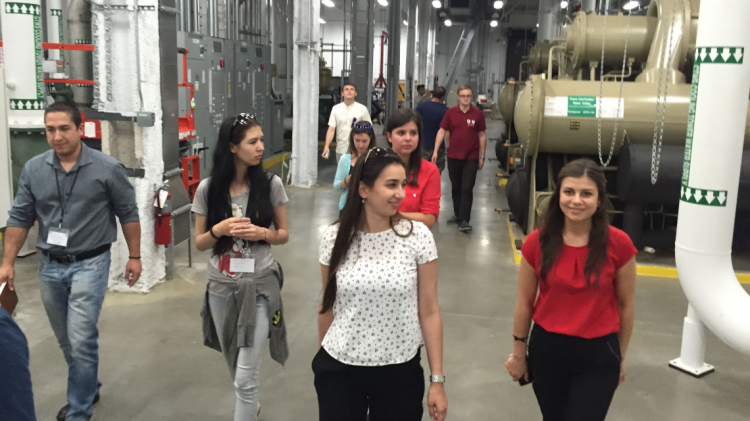The Intercontinental Nuclear Institute (INI) brought together 27 fellows from 13 European countries in a learning journey across continents. Held for the second year with support from the IAEA, the INI programme provides experiential learning to promising graduate students and young professionals in the fields of nuclear science and technology, who will be the future experts leading the nuclear power industry.
“The INI programme is designed to leverage the existing expertise and create a network of young professionals who will bridge the technology and knowledge gaps in the nuclear power sector,” said Sukesh Aghara, INI’s co-director. “Hands-on activities and technical visits are the bedrock of INI’s design, which started last year as a pilot programme.”
The four-week programme, held from 27 June to 22 July, is a joint initiative between the U.S.-Czech Civil Nuclear Cooperation Centre (CNCC) in Prague and the University of Massachusetts at Lowell (UML). With major contributions from the United States, the INI is supported by the Peaceful Uses Initiative (PUI), which the IAEA launched in 2010 to help with its technical cooperation projects.
INI 2016 offered fellows opportunities for capacity building, technical engagement and global dialogue in the fields of nuclear science and power reactor technology. With technical oversight from the IAEA and the mentoring of specialists in the fields of nuclear science and technology, the fellows explored topics such as nuclear safety and security, radiation detection and measurement, non-proliferation and physical protection.
The participants, many of whom had never seen a nuclear reactor before, gained a broader perspective thanks to the lectures, practical exercises and mentoring at nuclear installations both in the Czech Republic and the United States.
Compared to last year’s programme, the 2016 INI curriculum included enhanced activities and technical visits. “We took feedback very seriously and made a few changes to INI 2016’s content,” said Radek Skoda, co-director of the Institute. “We included a uranium mine visit, and we expanded the radiochemistry, detection and dosimetry lab sessions.”
INI 2016 was not just another training programme. It was a wealth of experience that we gained from lectures, site visits and mentored group projects.







